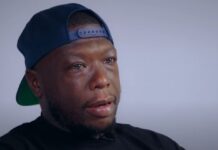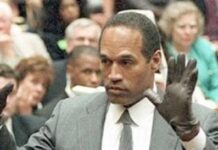*Anyone thinking The Beatles had the biggest influence on pop music may want to sit down for this.
The Los Angeles Times references a new study by researchers in Britain, which states that hip-hop, not the Fab Four, sparked pop music’s most important evolution in the last half-century.
Based on a digital analysis of chord patterns, tonal shifts and other audio features of more than 17,000 songs on the U.S. pop charts between 1960 and 2010, the study didn’t factor in lyrics.
The Times noted that researchers at Queen Mary University, Imperial College London and the online music service Last.fm found that the surge of hip-hop and rap music in 1991 had “far more auditory influence on the popular songs that followed than the British Invasion of 1964 or the synth-pop surge of 1983 — the other two years that saw big shifts in musical styles.”
“Hip-hop is the single greatest revolution in the U.S. pop charts by far,” Armand M. Leroi, 50, a professor of evolutionary developmental biology at Imperial College London and co-author of the study, told the Times. “That surprised me. Being a victim of boomer ideology, I would have said it was 1964.”
The results of the study conflicts with the popular perception that the British invasion of the 1960s was the period marking pop’s most significant development of the last half-century. With this view, the influence of hip-hop and rap is often downplayed in larger discussions pertaining to styles and genres that revolutionized pop music.
Despite this rap and hip-hop is often regarded as a game changer in pop culture. Yet it doesn’t get its due with being credited with revamping the very structure and sound of pop music as we know it.
For the study, researchers analyzed 30-second snippets pulled from 17,094 songs. The number of songs used represents 86% of all the singles that charted on the Billboard Hot 100 during the study’s 50-year span. Rather than focusing on genre classifications the Times mentioned that the study examined differences in chords, rhythms and tonal properties. From there each tune was assigned to one of 13 groups, based on the patterns found.
Other findings from the study, which also looked at diversity in pop music, factored in people’s opinion of the declining quality of music as well as musical styles that were already changing before the U.S. released the Beatles’ “I Want to Hold Your Hand” on Dec. 26, 1963.
“Their analysis showed that musical styles were already changing before that release, suggesting that the Beatles and other British Invasion bands simply capitalized on a movement already underway,” the Times reports.
Although the findings raise an eyebrow, there are some who don’t fully subscribe to its mathematical findings.
“It’s problematic that scientists are trying to assign some sort of quantitative means of assessing that importance [of pop music],” Joanna Demers, associate professor and chair of musicology at USC’s Thornton School of Music, expressed to the Times.
“Of all of the musical styles occurring in popular music around the world, hip-hop is quite important, but really it’s dub reggae that’s come back in everything we hear,” she said, referring to a genre of electronic music that grew out of 1960s’ Jamaican reggae. “I believe the software they’re using wouldn’t even register that.”
For more analysis and criticism on the study, click here.
We Publish News 24/7. Don’t Miss A Story. Click HERE to SUBSCRIBE to Our Newsletter Now!






